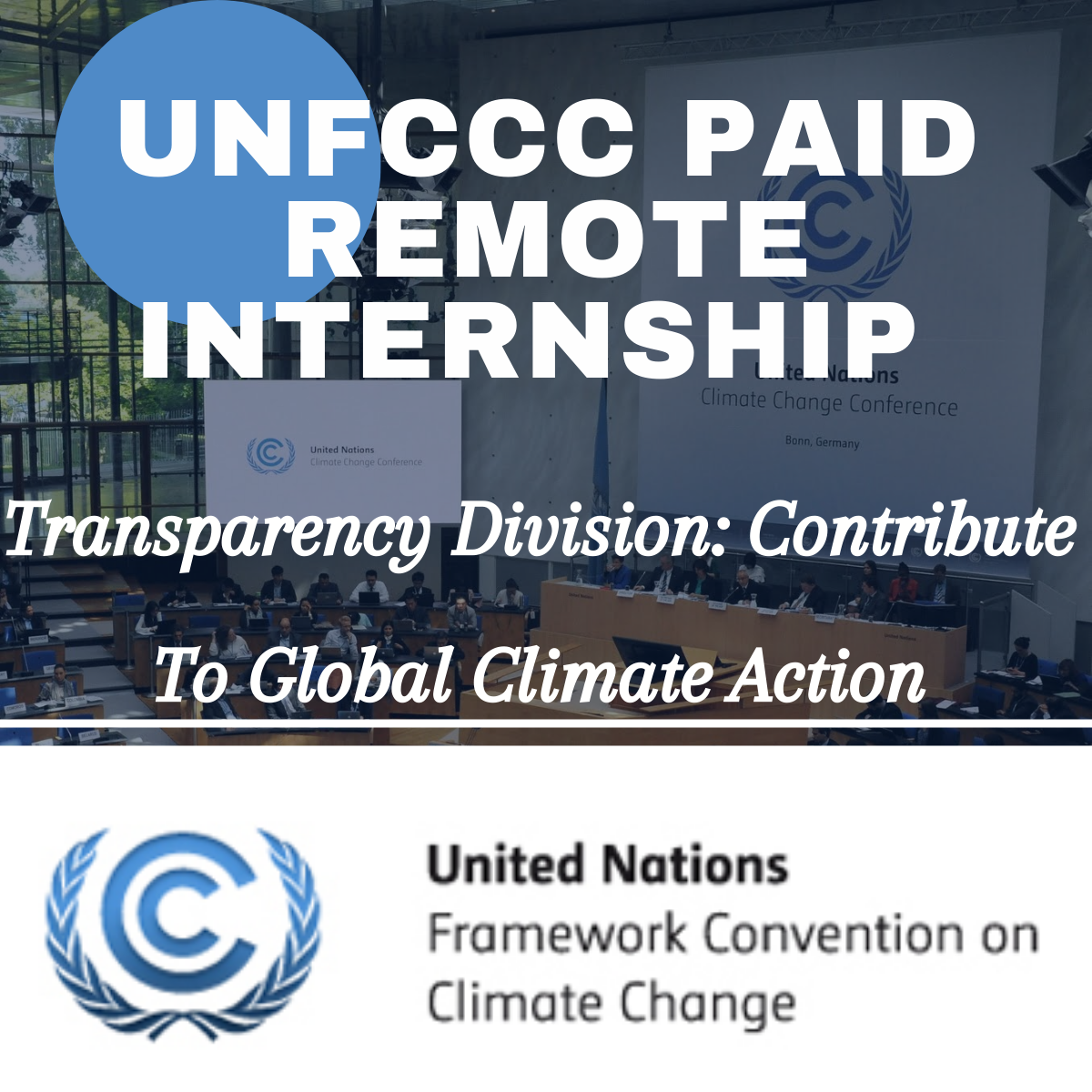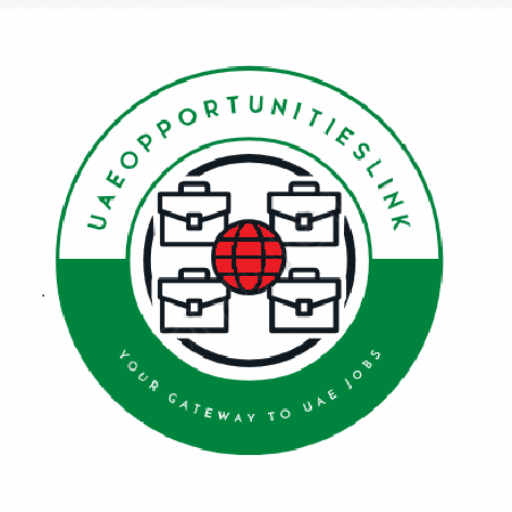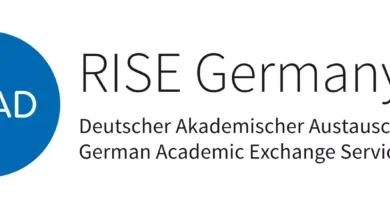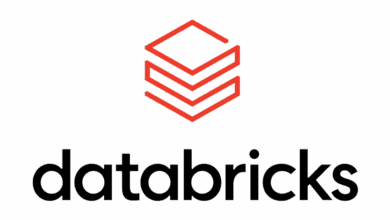
Paid Remote Internship With UNFCCC Transparency Division: Contribute To Global Climate Action
The United Nations Framework Convention on Climate Change (UNFCCC) offers a dynamic internship program designed to immerse students in the vital work of global climate diplomacy and policy. Hosted at the UNFCCC Secretariat in Bonn, Germany, this program provides academically grounded individuals with invaluable practical experience across multifaceted professional areas.
Purpose and Mission
At its core, the UNFCCC internship is structured to bridge academic learning with real-world engagement. Selected interns work within functional units, gaining exposure to professional environments and contributing to substantive tasks that address climate change. The program fosters hands-on learning in areas such as economics, legal affairs, communications, environmental sciences, IT, and public administration.
The overarching intent is to enhance educational experiences through meaningful, practical assignments within a United Nations entity—providing a foundational step for students eager to explore international climate work.
ALSO READ: UNICEF Fully Funded Remote Data & Analytics Internship – Education Outcomes Fund (EOF), 2025
Eligibility: Who Can Apply?
To be eligible, applicants must be currently enrolled in their final year of undergraduate studies or pursuing graduate-level education (Master’s or higher) at a recognized university. Academic backgrounds should relate to the UNFCCC’s mandate, including disciplines like environmental sciences, economics, IT, communications, international law, or political science. Applicants must be proficient in English.
Importantly, the program maintains strict integrity protocols: applicants must not be closely related—by blood or marriage—to a UNFCCC staff member, ensuring fairness and transparency.

Terms & Conditions
Duration
Internships typically last two months, with the possibility of extension for an additional two months. In exceptional cases—such as specific academic or programmatic needs—internships may run up to six months.
Status & Employment Terms
Interns are not considered UNFCCC staff and do not receive the privileges or legal immunities accorded to UN staff. There is no guarantee of employment either during or after the internship, and interns are ineligible for UNFCCC employment for six months following their assignment.
Confidentiality & Conduct
Interns are expected to conduct themselves professionally at all times and maintain confidentiality regarding all unpublished information accessed during their placement. Public reporting or publishing of materials derived from their internship is prohibited without prior written permission.
ALSO READ: UNDP Now Recruiting Worldwide: Competitive Salaries Up To $120k And Fully Supported Roles
Financial and Logistics Responsibilities
UNFCCC internships are unpaid. Interns must bear all personal costs—such as travel, visa expenses, accommodation, living costs, and medical insurance. The Secretariat assumes no responsibility for injury or illness. Proof of adequate health insurance is mandatory.
A comparison across sources confirms the consistency of this arrangement: interns must self-fund their participation and carry full personal risk.
Remote Opportunities & Technical Requirements
Recent announcements show that certain internships—such as those within the Adaptation Division’s Vulnerability Sub-Division—may be completed remotely. Remote assignments are available for periods ranging from three to six months, depending on the intern’s availability and program needs.
Remote interns must meet specific technical prerequisites:
- A reliable laptop or desktop with up-to-date Windows or MacOS.
- A stable, high-speed internet connection.
- Updated antivirus software, browsers, and system updates.
- A mobile device to support multi-factor authentication.
- UN-provided Office 365 access for key tools such as SharePoint, OneDrive, email, Word, and Excel.
Typical Roles & Responsibilities
Intern activities vary by division but generally include:
- Conducting literature reviews and data analysis.
- Supporting event coordination and outreach efforts.
- Designing infographics, videos, and content for knowledge-sharing platforms.
- Managing digital portals and contributing to communications and reporting.
For example, Legal Affairs interns assist in servicing official meetings, preparing legal research and briefing materials, drafting opinions, and supporting logistical coordination. These responsibilities offer a robust grounding in the intersection of policy, law, and environmental governance.
Application Process
Prospective interns must register through the UNFCCC online portal, complete the Personal History Form (P.11) using the “internship” version, and submit a cover letter outlining their motivations and goals. No additional attachments are accepted.
Upon application, candidates will receive acknowledgment within 24 hours; if not, they are advised to contact the Secretariat directly. Shortlisted applicants may then be invited to virtual interviews or assessment tasks.
Student Voices & Realities
Discussion in professional communities reflects the highly competitive nature of UN internships. According to a career advisor with experience guiding international applicants, “it’s both extremely competitive, and at the same time it’s completely doable”—especially when candidates meet the eligibility criteria and invest in a carefully tailored application.
The reality of unpaid placements, especially in expensive cities like Bonn, is frequently cited as a financial burden. Some interns opt for remote positions or rely on personal savings and family support to finance participation.
Conclusion
The UNFCCC internship program offers a distinctive platform for academic and professional growth in climate action, policy, and international governance. Although unpaid, the program’s value lies in mentorship, skill-building, and direct exposure to global climate processes. Ideal candidates are proactive, deeply engaged with climate issues, and prepared to contribute meaningfully in a diverse and fast-paced environment.
If you’re interested in applying and would like help crafting your application, refining your cover letter, or preparing for the selection process, I’d be delighted to assist!
ALSO READ: Fully Funded UNESCO Youth Hackathon 2025: Innovate For Media And Information Literacy
APPLY ON OFFICIAL WEBSITE
For More Latest Opportunities Join Us:
WHATSAPP – FACEBOOK – TELEGRAM – LINKEDIN




